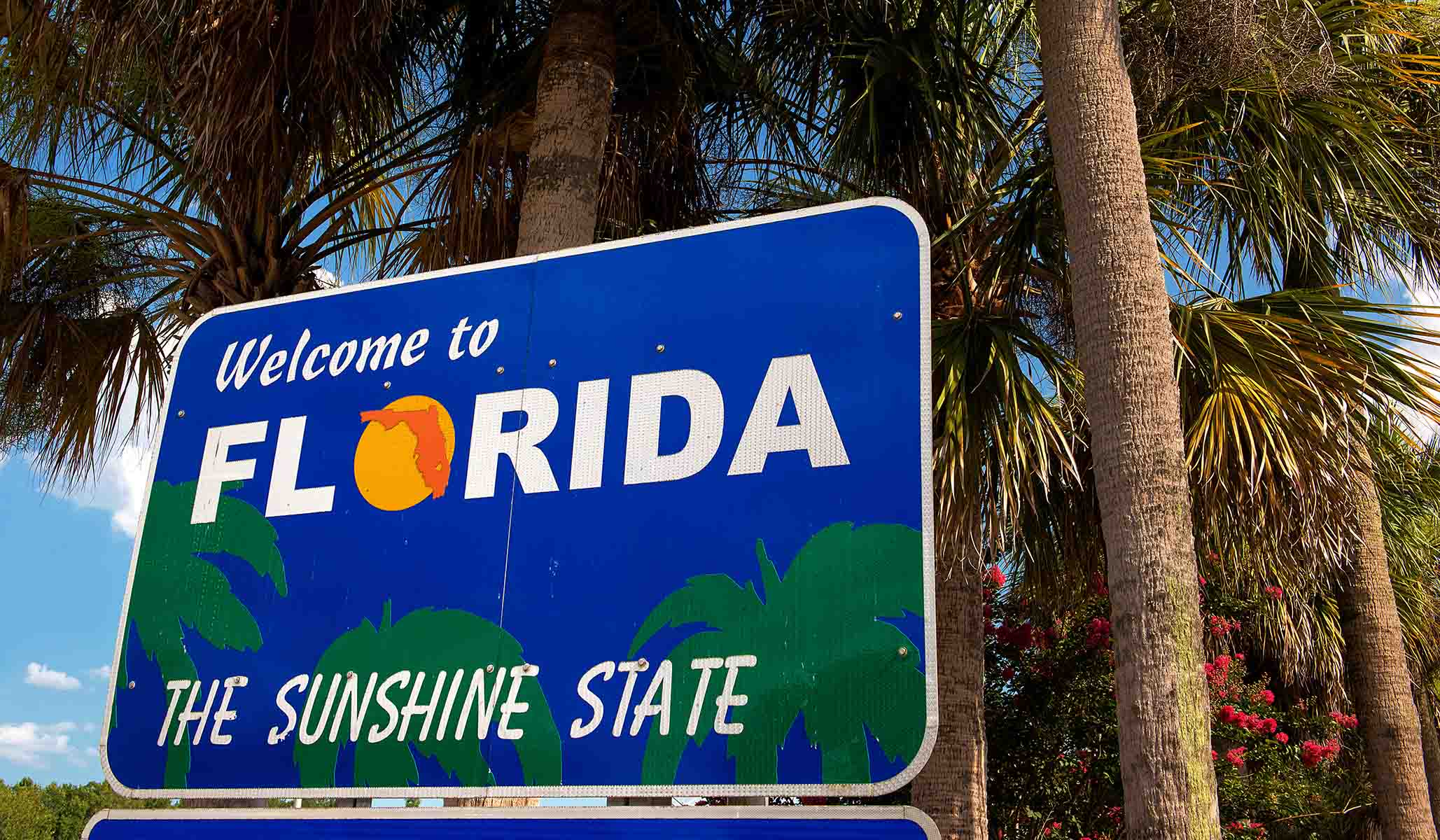


NRPLUS MEMBER ARTICLE E ven now, the license plates are still piling up. New York, New Jersey, Maryland, Pennsylvania, Illinois, even California. This is Florida, so I’m accustomed to out-of-staters, but there are usually telltale signs that indicate that a car has been driven here one-way. Keen to fit in straight away, the immigrants cover their vehicles with instant markers of belonging: a mirror-tag for their kids’ new school, a bar code for their gated community, a bumper sticker from that restaurant they liked so much on the day they moved down. They’ll tell you about it, too. At Little League, at playdates, at the beach — it’ll excitedly slip out: “Of course, we just moved from New Jersey, so this is all new to us.”
New — and free. In news reports that describe the exodus from high-tax states, it is customary to read mostly about the savings: In Philadelphia, the Jefferson family paid this much; in Tampa, they’re paying less than half that! But that’s not the whole game. The vibe matters, too. Here, the crew at the DMV smiles at you. The people in the legislature seem to see you as something other than an irritation. The support staff at the tax office seems to be on your side. The forms you must fill in are short and to the point. Life is less encumbered here. It’s not just about the money.
The money helps, of course. In Connecticut, I paid 5 percent of my income to Hartford; in Florida, I pay none. But just as important is that, while I’m within the state, I never have to think about all that goes along with paying it. Here, my business is my concern. I can earn nothing, everything, or a sum that sits in between, and Tallahassee doesn’t give a hoot. I have no details to share, no brackets to calculate, no deductions to consider, no paperwork to file, no estimated checks to send in four times per year. Yes, I still have Washington to worry about, but there’s nothing loaded up on top of all that. In Florida, I cannot receive a letter saying that I — or the state — have made a mistake in calculating my dues. In Florida, I cannot be audited because a machine randomly flagged my name. In Florida, I cannot be sucked into the terrifying, Kafkaesque black hole that is your average state-level revenue service. There is a great psychic benefit to this. It’s not just about the money.
For those who run businesses, this is doubly, triply, quadruply true. Ask any entrepreneur who has moved from California to Florida, and they’ll beam at you while explaining the difference in their quality of life. There are business taxes here, sure, and there is inevitably some bureaucracy to be borne. But compared to their old state, it is night and day. The fees are simple and low. The hiring processes are easier. The compliance costs are minimal. The instruction sheets are sufficiently straightforward that one does not spend one’s days wondering if one has forgotten to file form 3863B. Dentists can be dentists. Shopkeepers can be shopkeepers. Writers can be writers. Per Thumbtack, Florida ranks in the top four for small-business friendliness. Time spent on administration is time that can’t be spent at the beach. It’s not just about the money.
In his History of England, AJP Taylor noted that “until August 1914 a sensible, law-abiding Englishman could pass through life and hardly notice the existence of the state beyond the post office and the policeman. He could live where he liked and as he liked. He had no official number or identity card.” Sounds nice, doesn’t it? In all likelihood, we are not going back to that sort of world — and, even if we did in a handful of places, the gaping maw that is D.C. would offset much of the benefit. But, compared to much of the rest of the country, Florida is at least trying to get out of the way. It’s not just about the money.
